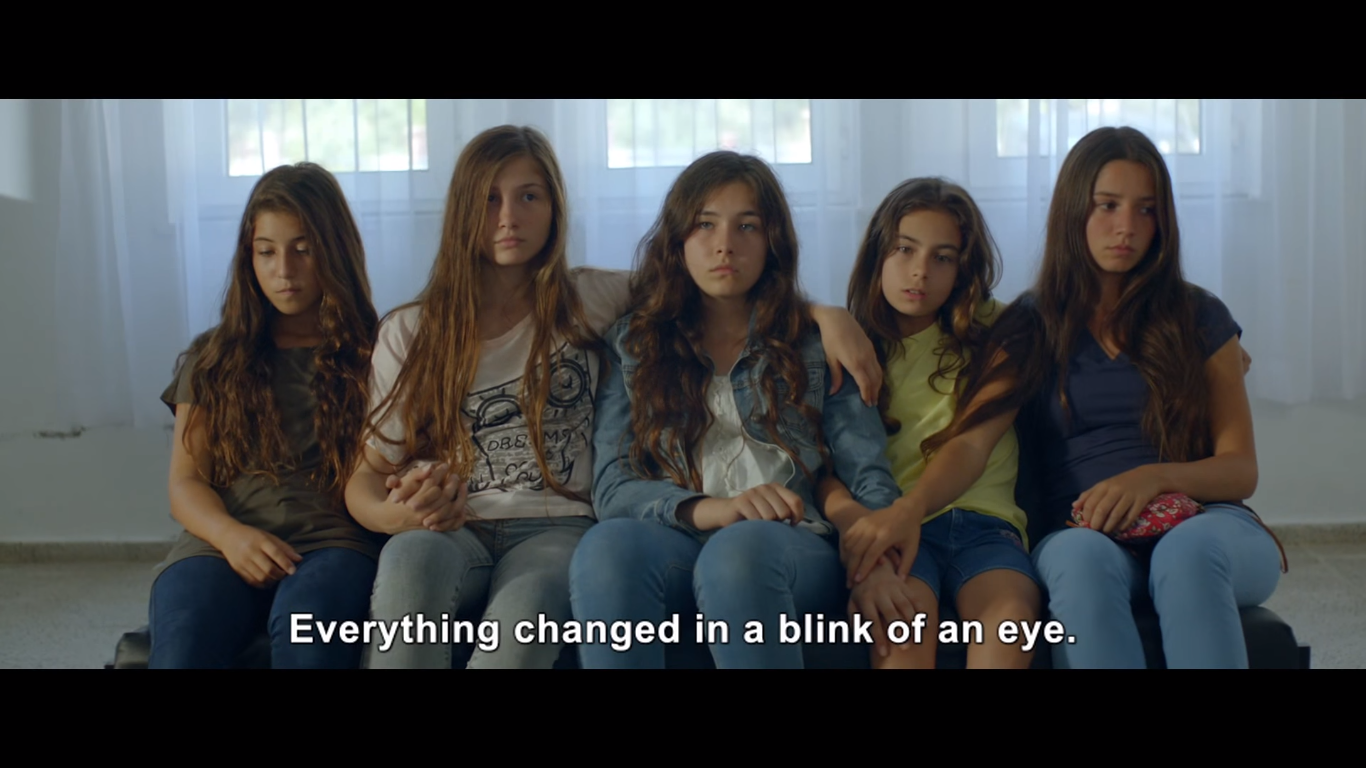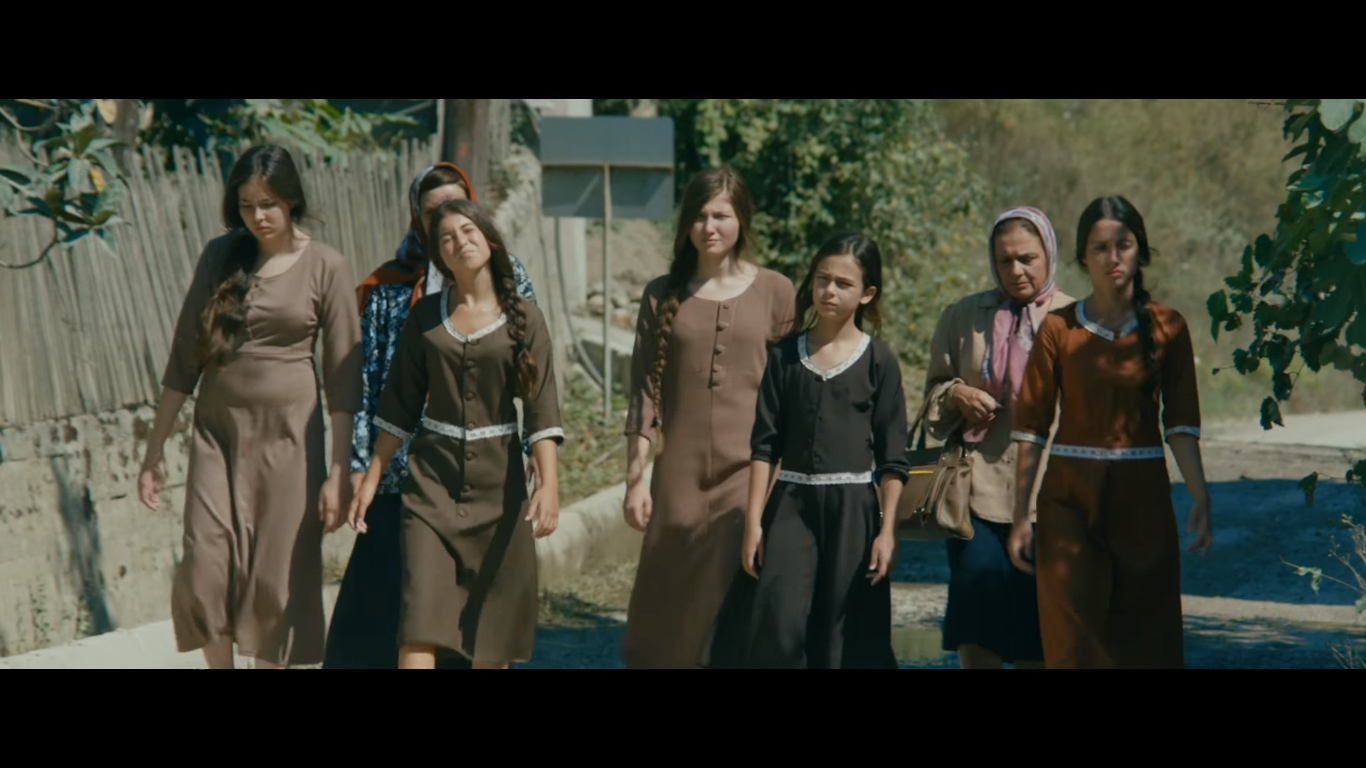“It’s like everything changed in the blink of an eye. One moment we were fine, then everything turned to shit.”
This quote is from an opening passage in the film Mustang, a powerful French production depicting the lives of five young orphaned sisters in a village in Turkey who are forced out of innocence by their conservative family.
Mustang: /ˈmʌstaŋ/
Derives from: Mexican Spanish word mestengo, “animal that strays”.
Mustang, screened on the last day of the Human Rights Watch Film Festival, is as much a hymn to youth and sisterhood as it is a portrait of human rights abuses young women and girls might go through on a daily basis in such societies.
The first five minutes of the film show the girls frolicking with their male classmates on a beach. However, they quickly find themselves trapped in a series of arranged marriages and virginity tests triggered by the supposed depravity of the initial scenes.
Their house then progressively turns into a prison – with soldered windows and interrupted telephone lines. The girls are prevented from going to school and instead are taught how to cook, clean and behave. The whole scene, described by the youngest sister as a “wife factory”, depicts a worryingly truthful image of today’s Turkish society.

The sisters went through virginity tests to prove their purity to suitable husbands. [Image credit: Mustang]
Elif went on to say that Turkey has a “patriarchal, sexist and homophobic society”. She worries that the general mindset of people is sliding backwards, not only across the country, but also across much of the Middle East.
“Politicians have been telling us how many children we should make and how we should not laugh out loud in public because modest Turkish women do not do that.”
“All these statements coming from one politician after another are building up.”
As the plot evolves into a dramatic, nail-biting sequence of women’s rights abuses – with an unexpected death and a sexually abusive relative taking the spectators by surprise – we are reminded of the challenges of growing up in a conservative society, especially for girls. And especially behind closed doors.
Though the role of older women was not as emphasised in Mustang, Elif underlined how being a good mother and wife is the primary role Turkish women are expected to play in society.
“The problem is, unless a woman gets old, she is not very well-respected,” Elif explained.
“The moment you get older and you are de-feminised and de-sexualised in the eyes of society, then you are given powers.”

The sisters were forced to wear shapeless, dull coloured dresses to avoid teasing men. [Image credit: Mustang]
Human Rights Watch (HRW) has warned that this has dire life-long consequences for the child, “often crippling her ability to realise a wide-range of human rights”. Heather Barr, Senior Investigator at HRW, also linked child marriages with rising domestic violence rates, saying:
“There is a higher chance of a girl, who was forced to marry young, suffering from domestic violence”.
This risk increases when there is a large gap between the age of the girl and her husband. Often deprived of their education, young girls have limited information about their rights and have a lack of access to social and legal assistance.
This leaves them more vulnerable to an abusive husband.
“If they go to the police they say ‘Go back to your husband, go back to your family’. It is an entire culture we need to question.”
While the discussion raised serious questions about women’s rights in Turkey, the follow-up panel discussion ended on a positive note. Elif admitted Turkey’s democracy was deeply bruised but said: “Even though I am pessimistic when I look at the system, I feel optimistic when I look at the people because you meet such brilliant minds, such beautiful people.
“The youth, women, minorities, subcultures… Often times in closed systems these people are ahead of the government, and we should not forget that.”

